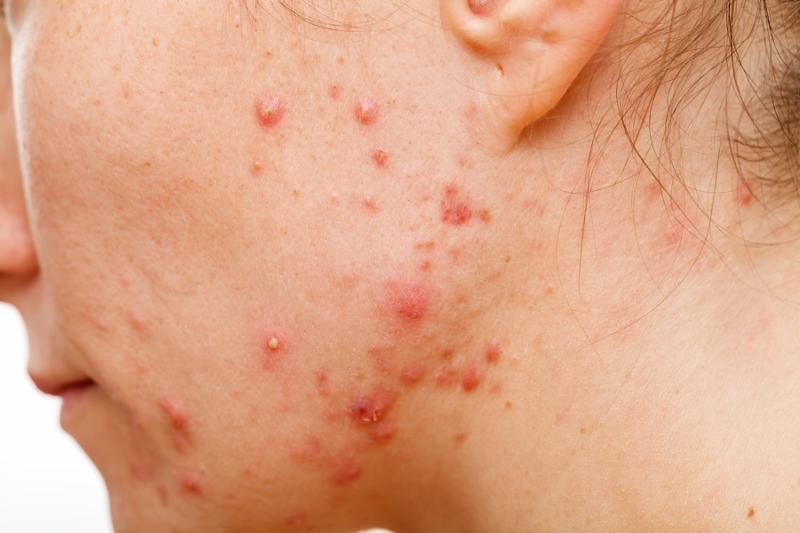Even with a growing esthetic division, our dermatologists continue to take care of hundreds of medical skin conditions every week. And what is the most common skin condition in the US, affecting nearly 50 million people at any one time?
Acne
What is it?
The “pimples” of acne include a spectrum of blemishes including blackheads, whiteheads, papules, pustules, and deeper, more inflamed cysts and nodules. Acne usually appears on the back, chest, neck, shoulders, upper arms and buttocks.

Who gets acne?
Most people who have acne are teenagers or young adults, but acne can occur at any age. Newborn babies, and older men and women can also get acne.
Why treat it?
Untreated acne blemishes can go on to cause persistent dark spots on the skin and permanent scarring, which are difficult to treat. Studies also show that people who have acne can have low self-esteem or even depression.
What causes acne?
Acne appears when a pore in our skin clogs with dead skin cells, excessive oil (sebum), and bacteria. This combination can cause the skin in these areas to become inflamed. If the inflammation goes deep into the skin, an acne cyst or nodule appears.

How do we treat acne?
Virtually every case of acne can be controlled with a wide range of effective treatments ranging from over the counter products (such as benzoyl peroxide or salicylic acid) to physician-prescribed topical or oral medications. That being said, acne will not clear overnight, and even after it is cleared preventative treatment should usually continue.
For those who have a lot of acne, cysts, or nodules, non-prescription medicine may not work. Our doctors offer evidence-based treatments that depend on the type and severity of the acne. Topical medications may kill bacteria or reduce the skin’s oil production and may contain a retinoid, prescription-strength benzoyl peroxide, antibiotic, or salicylic acid. We may also recommend adjunctive treatments for acne and/or scarring including chemical peels, laser treatments, or injections of medicine into cysts or nodules.
Here are some simple skin care tips to help prevent acne:
– Wash gently twice a day and after sweating; use a gentle, non-abrasive cleanser applied with your fingertips; avoid scrubbing.
– Let your skin heal naturally. If you pick, pop or squeeze your acne, your skin will take longer to clear and you increase the risk of getting acne scars.
– Keep your hands off your face. Touching your skin throughout the day can cause flare-up.
Come see us if your acne makes you self-conscious; the products you’ve tried have not worked; or your acne is leaving scars or darkening your skin.

